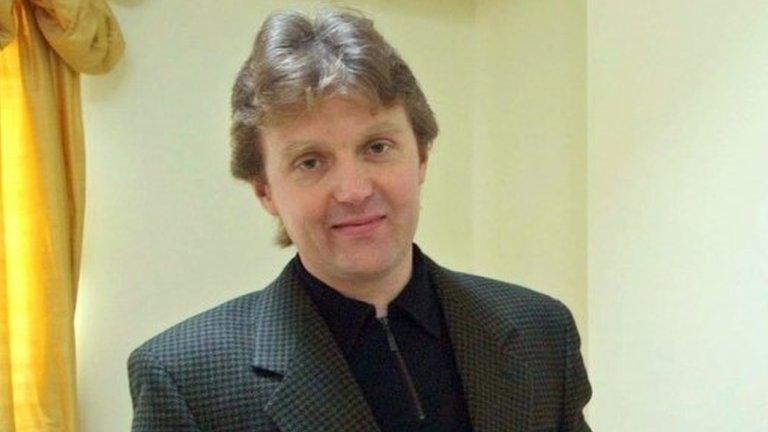Litvinenko inquiry: Key suspect Kovtun aims to clear his name
- Published
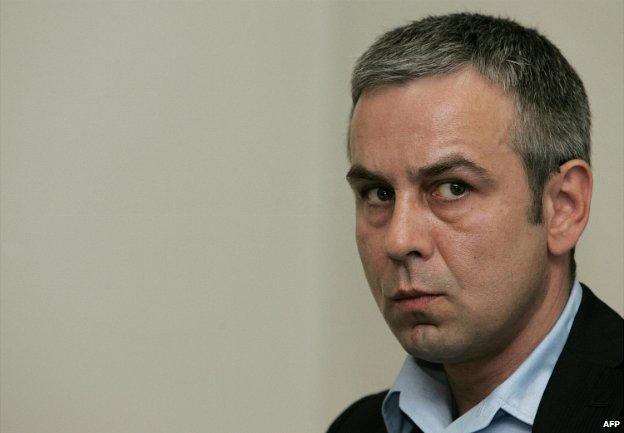
Dmitry Kovtun recently changed his mind and decided to co-operate with the inquiry
For a man accused of carrying out what's been described as the world's first case of nuclear terrorism, Dmitry Kovtun arrived for the interview at the BBC Moscow office looking remarkably relaxed.
His only major concern was finding a place he could smoke.
The former Soviet army officer has been charged, along with his colleague Andrei Lugovoi, of murdering Alexander Litvinenko nine years ago, using the radioactive substance polonium-210.
Mr Litvinenko, a former Russian spy, had fled to Britain after accusing his agency, the Federal Security Service (FSB), of corruption and carrying out assassinations.
It was during a meeting with Mr Kovtun and Mr Lugovoi at a London hotel in November 2006 that he drank tea containing a fatal dose of polonium.
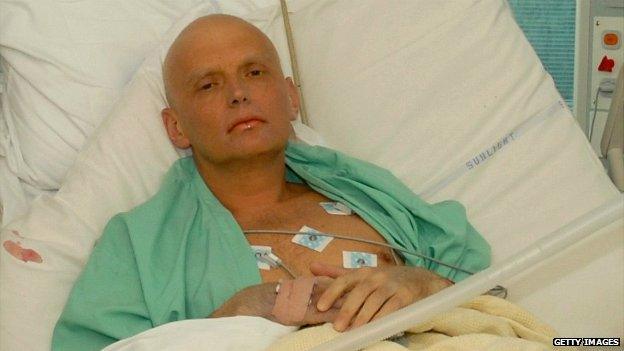
Alexander Litvinenko died following a meeting with Mr Kovtun and Andrei Lugovoi in 2006
The official inquiry into the murder, which finally opened in London in January, has heard a stream of evidence linking the two men to the murder.
But it's only now, just as the lawyers were about to make their closing statements, that Mr Kovtun has decided to co-operate with the inquiry and give his version of events via video-link from Moscow.
"I decided to participate now because after observing the hearings in London, I heard many things that can be easily refuted," he said.
"I can tell that a lot remains unclear in this case, and I am the only person to have the answers. I believe light shall be shed on many key issues here, and that could really change things a lot, as the British investigation is still groping in the dark for answers."
'Kremlin mobilising'
But the timing of Mr Kovtun's intervention has caused consternation at the inquiry, with lawyers and the chairman, Sir Robert Owen, all questioning the real motives behind the decision.
One lawyer said he had "grave concerns as to what might be behind these developments", while a source told the BBC "the Kremlin seems to be mobilising".
The fear is the inquiry could now get bogged down.
Already the schedule has been put back.
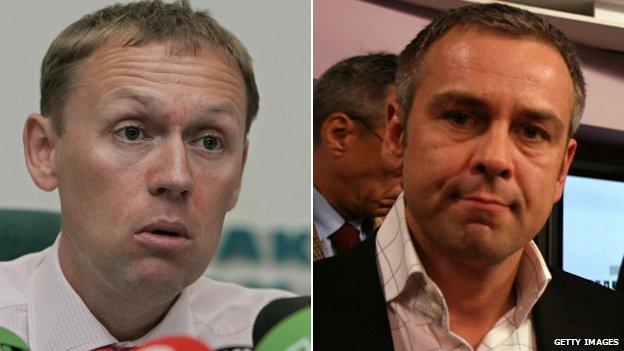
Both Mr Lugovoi and Mr Kovtun have denied any involvement and remain in Russia
A further concern is that if Mr Kovtun now becomes a "core participant", to which he is entitled, he would then have access to all the documents, including some classified material.
Mr Kovtun insists the decision to testify now was his and says he's prepared to be cross-examined by any of the lawyers and the police.
But he admitted that getting access to the documents was one of the motives for co-operating.
"Being one of the major participants allows me to question certain people myself and gather some materials, including some classified ones," he said.
"Based on these, I can make my own conclusions."
'An accident'
He also claims to have material which will undermine some of the most important evidence presented at the inquiry implicating him and Mr Lugovoi.
"I am not participating in this process to make people's lives more complicated, to twist something or to prolong it. No tricks," he said.
Instead, he says he wants to try to clear his name.
"I can state that I have absolutely nothing to do with [Litvinenko's murder] and nor does Lugovoi."
So if it wasn't not them, who did kill Mr Litvinenko?
"No idea," he says. "In fact I don't think anyone killed him. I think it was an accident of some sort."
- Published22 March 2015
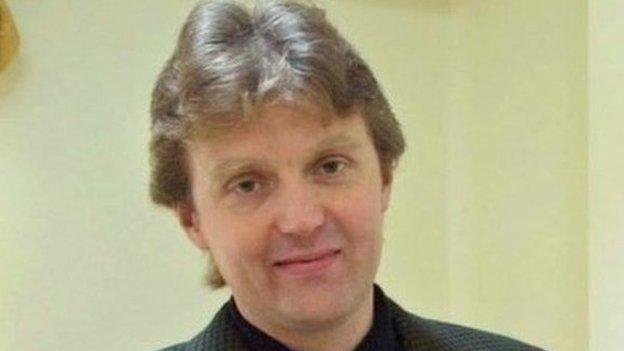
- Published6 February 2015
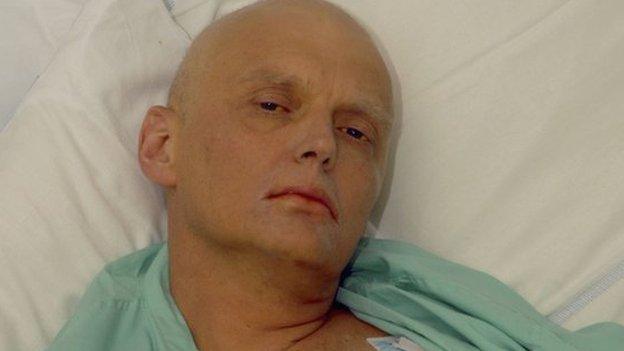
- Published27 January 2015
